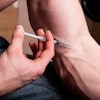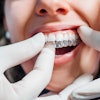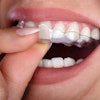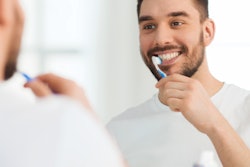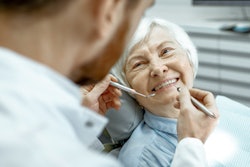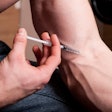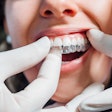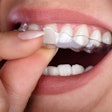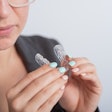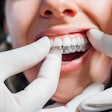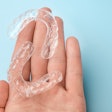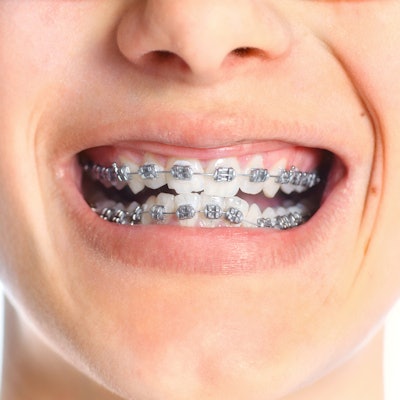
Can an app reduce plaque for orthodontic patients? Researchers analyzed the effects of using a mobile app on the oral hygiene of adolescents undergoing fixed orthodontic treatment in a small study published on October 1 in the International Dental Journal.
Successful orthodontic treatment happens when occlusion corrections are achieved without compromising the preexisting health status of the patient's teeth and supporting tissues. Previous studies have shown that an educational approach that uses interactive digital resources is effective in helping young people maintain good oral hygiene.
The study comprised eight volunteers between the ages of 14 and 19 who were randomly assigned to either the experimental or control group. Volunteers in the control group received standard oral hygiene instructions, while volunteers in the experimental group received standard oral hygiene instructions, guidance, and motivation through an app.
Clinical assessments were made using the visible plaque index (VPI) and the gingival bleeding index. Assessments were taken at five different points throughout the study: before orthodontic device installation; at baseline; and 30, 60, and 90 days after randomization.
Both groups experienced a significant improvement in the percentage of visible plaque between pretreatment and 60 days, pretreatment and 90 days, and 30 days and 60 days. A statistical difference was also observed between 60 days and 90 days for both groups in the percentage of gingival bleeding.
Although the app group had better improvement, the difference in plaque and gingival scores was not significantly different between the two groups.
Previous studies have highlighted the effectiveness of digital platforms -- such as apps, YouTube, and Instagram -- to improve the oral health of orthodontic patients. These platforms help patients easily find different oral hygiene techniques.
"In the present study, a similar result regarding knowledge and attitudes could be observed at the end when all patients in the test group finally agreed that [oral hygiene] is important and, although there was no difference between the groups, there was a decrease in the VPI in the app group at all 4 initial moments of the study, indicating a change in the behaviour of these patients," explained the study authors, led by Raquel Lopes dos Santos of Universidade Cruzeiro do Sul in Sao Paolo.
The study authors further observed a decline in oral hygiene during the last period of the survey in the app group. Considering the age of the participants, the study authors stress the importance of further studies regarding the model of the app created.
"This tool can be useful to change adolescents' oral health behaviour and extend throughout life as long as it meets the needs of the population involved," Santos and colleagues concluded.
